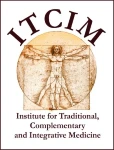
Dr. Dilip Ghosh - Australia
Abstract of the presentation
Global Regulatory Landscape of Dietary Supplements, Nutraceuticals, and Herbal Medicines
Branch: Nutritional Supplements (Nutraceutical)
The number of individuals using dietary supplements (DS), nutraceuticals, and herbal medicine (HM) products is continuously increasing globally. The WHO reports that this consistent surge is due to limited access to safe, affordable, and high-quality modern medical care. Definitions and usage vary widely from country to country: in some, these products are limited to general health and well-being, while in others their use for therapeutic benefits is permitted.
To date, there is little consensus among countries on the scope, requirements, definitions, or even the terminology by which dietary supplements, nutraceuticals, and herbal medicine categories should be classified. Transparent, science-based quality standards for ingredients across regulatory frameworks are therefore especially important. Data analytics methods may play a significant role in the development of robust quality-evaluation methodologies to enhance assessments of natural products classified either as “supplements” or “medicines”.
Existing surveillance systems implemented in various countries provide useful information resources on the adverse events of herbal products. Example include the ADR reporting system in China and Australia, the FDA MedWatch program in the United States, Medsafe in New Zealand, and pharmacovigilance systems such as the EMA database and the Rapid Alert System for Food and Feed of the European Commission.
This presentation will summarize key information from a longitudinal comparison of the status of dietary supplements, nutraceuticals, and herbal medicines across different national jurisdictions, including India, Japan, USA, Australia, Canada, and Europe.
Please note that some of the texts also include machine-generated translations.





